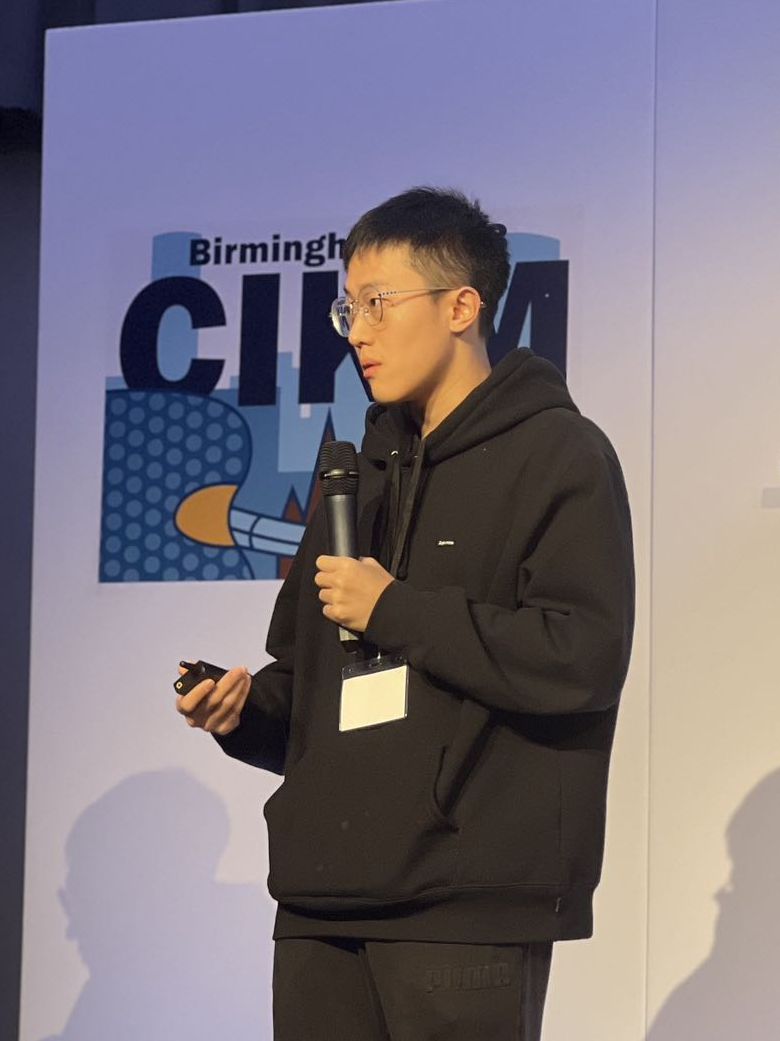As awards for research papers were announced at the recent Association for Computing (ACM) international Conference on Information and Knowledge Management in England, PhD student Heng Tan ’22G wasn’t paying too much attention. He was focused on his dinner. Plus, he was there representing the first paper he’d ever published. He had zero expectations.
So he was floored when he heard his name called. He had won the conference’s Best Paper Award for his research titled, “Joint Rebalancing and Charging for Shared Electric Micromobility Vehicles with Energy-Informed Demand.”
“Everybody around me just started celebrating and taking pictures of me,” says Tan, who is in his second year as a computer science and engineering doctoral student and is advised by assistant professor Yu Yang. “I was just shocked. And then I felt really proud.”
As the use in the U.S of shared micromobility vehicles such as e-scooters and e-bikes has increased—from 25 million trips in 2016 to 112 million trips in 2021—meeting both the human and the energy needs has become a complex challenge. The battery capacity of micromobility vehicles is significantly less compared with electric vehicles, so they require strategic monitoring to ensure they’re not only reliably located in areas of high demand but also have sufficient power to meet that demand.
“With an e-scooter or an e-bike, the energy consumption of a single trip can greatly impact its remaining energy,” he says. “And that was what inspired me to consider energy consumption when it comes to vehicle scheduling.”
Using real-world data from the city of Newark, New Jersey, Tan developed a reinforcement learning-based method that incorporates energy-informed demand into the scheduling framework. The system operation center responsible for the vehicles then uses that framework for nightly distributions (by truck) of properly charged vehicles around the city.
The goal is to balance user demand with resource use—energy for the e-scooters and/or e-bikes, gas for the trucks—so that net revenue from the micromobility service is positive for the city.
“The module we developed will allow agents in charge to make the most efficient decisions to guide the rebalancing and charging of these vehicles.”
Tan was one semester into his master’s program in computer science at Lehigh when he realized how much he enjoyed research. Specifically, the real-world applications of the algorithms he was learning in class.
“When you’re involved in use-inspired research, you’re able to actually see in real time how well those algorithms are performing,” he says.
Lehigh has proven to be the ideal environment for that research. Tan says he thrives in the quiet environment of a small university where he always has access to his advisor, other faculty members, and his fellow PhD students. And he finds endless satisfaction in the research process.
“You encounter these problems that no one has been able to solve, and when you’re able to come up with a solution, you’re solving a problem for all of humanity.”
Tan admits that receiving such a distinction for his first published paper sets a high bar for those that will follow—his work, after all, was selected from 354 accepted papers out of 1,472 submissions. But he’s not dwelling on the pressure. Many other challenging yet interesting problems remain to be addressed in micromobility systems, and he’s currently working to further enhance their efficiency and user-friendliness.
“This award,” he says, “I’m using it for motivation.”

